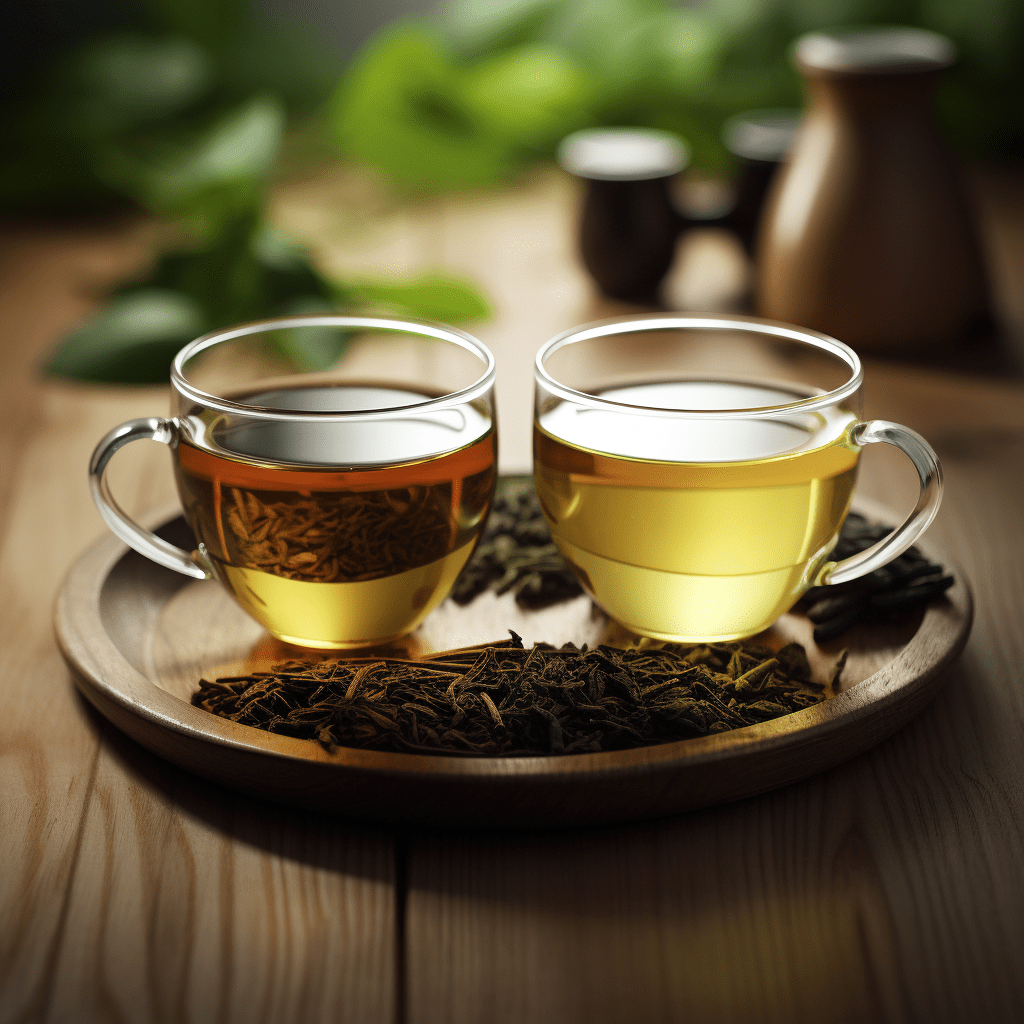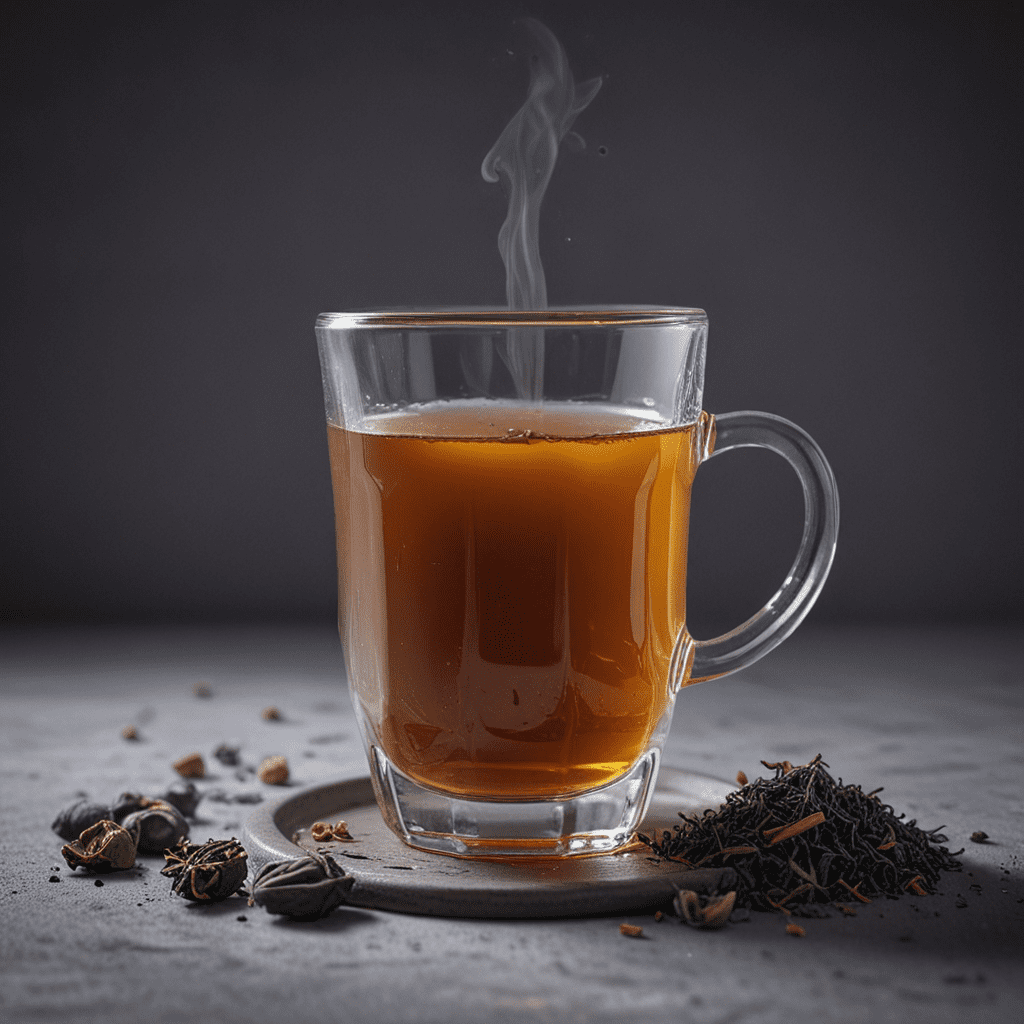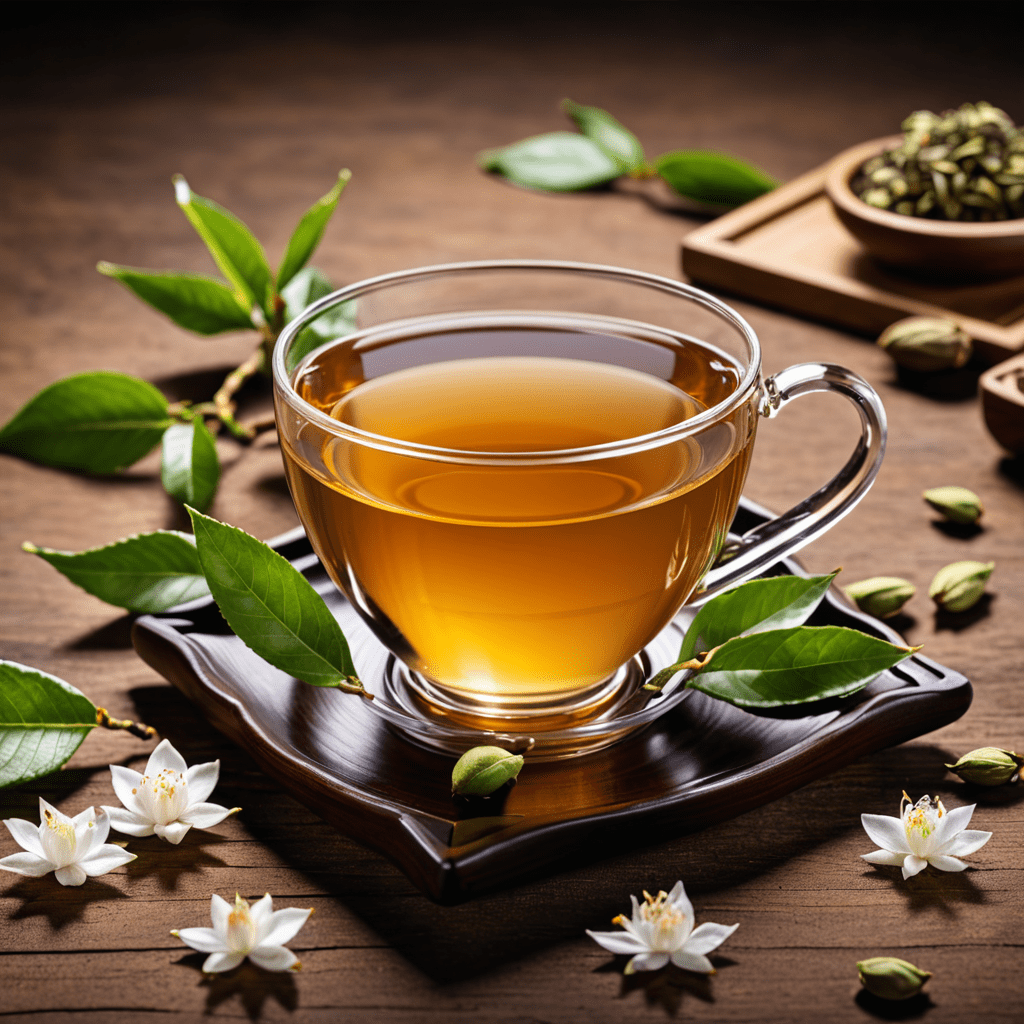
The Difference Between Green Tea and Black Tea
When it comes to tea, there are numerous varieties available, each with its own unique characteristics and flavors. Green tea and black tea are two of the most popular types consumed worldwide. While they both originate from the Camellia sinensis plant, they undergo different processing methods, resulting in distinct flavors, colors, and health benefits. In this article, we will explore the differences between green tea and black tea in depth.
1. Processing Methods
The primary difference between green tea and black tea lies in their processing methods. Green tea is made from leaves that undergo minimal oxidation. After picking, the leaves are immediately heated to halt the oxidation process. This helps retain their natural green color and delicate flavors. On the other hand, black tea is made from leaves that undergo complete oxidation. This involves allowing the leaves to wither, roll, and ferment before they are dried. The oxidation process gives black tea its characteristic dark color and robust flavor.
2. Flavor Profiles
Green tea is known for its fresh, light, and grassy flavor. It has a subtle sweetness and a slightly astringent taste. The lack of oxidation in the processing of green tea preserves its natural polyphenols, which contribute to its unique taste. In contrast, black tea has a stronger, bolder flavor. It often exhibits malty, earthy, or even fruity notes, depending on the specific variety. The oxidation process enhances the formation of complex flavors in black tea, making it a favorite for those who prefer a more robust taste.
3. Caffeine Content
Both green tea and black tea contain caffeine, but the levels differ. Black tea generally has a higher caffeine content than green tea. On average, an 8-ounce cup of black tea contains around 40-70 milligrams of caffeine, while green tea contains around 20-45 milligrams of caffeine per cup. However, it is important to note that individual tea varieties and brewing methods can influence caffeine levels. If you are sensitive to caffeine, opting for decaffeinated versions or herbal teas might be a better choice.
4. Health Benefits
Green tea and black tea offer various health benefits attributed to their rich antioxidant content. Green tea is particularly renowned for its high levels of catechins, a type of polyphenol with potent antioxidant properties. These antioxidants have been linked to potential benefits such as improved heart health, reduced risk of certain cancers, and weight management. Black tea, on the other hand, contains theaflavins and thearubigins, which are antioxidants formed during the fermentation process. These compounds have been associated with promoting cardiovascular health and supporting immune function.
5. Brewing Methods
Both green tea and black tea require different brewing methods to bring out their optimal flavors. Green tea is more delicate and sensitive to high temperatures, so it is recommended to brew it at lower temperatures, around 160 to 180°F (71 to 82°C). Steeping green tea for 2-3 minutes generally yields the best results. Black tea, being more robust, can tolerate higher temperatures. It is typically steeped in boiling water, around 200 to 212°F (93 to 100°C), for 3-5 minutes. Adjusting steeping time allows for personal preference in terms of tea strength.
Frequently Asked Questions (FAQ)
Q1: Can I substitute green tea for black tea in recipes?
A: While you can substitute green tea for black tea in recipes, keep in mind that it might alter the flavor profile of the dish. Green tea’s delicate, grassy taste may not blend as well with certain flavors as the stronger, bolder taste of black tea.
Q2: Which tea is better for weight loss, green tea, or black tea?
A: Both green tea and black tea have been associated with weight management benefits, thanks to their antioxidant content and potential metabolism-boosting properties. Ultimately, it’s best to choose the tea that aligns with your taste preferences, as consistency in consumption is key for any potential weight loss effects.
Q3: Are there any side effects to drinking green tea or black tea?
A: While green tea and black tea are generally safe for consumption, it’s important to be mindful of your caffeine intake. Excessive consumption of caffeine can lead to side effects such as headaches, sleep disturbances, and heart palpitations. It’s best to moderate your tea consumption and consult with a healthcare professional if you have any concerns.
In conclusion, the main differences between green tea and black tea lie in their processing methods, flavor profiles, caffeine content, and health benefits. Whether you prefer the light, grassy notes of green tea or the bold, robust flavor of black tea, both offer a delightful tea-drinking experience. So, go ahead, brew yourself a cup and savor the distinctive characteristics of each type of tea.


